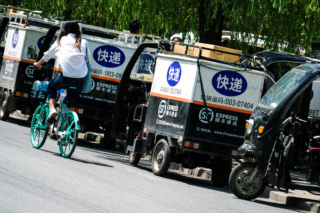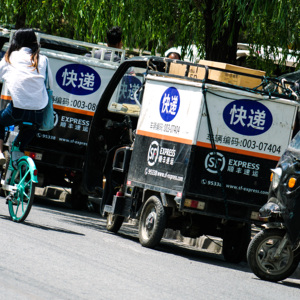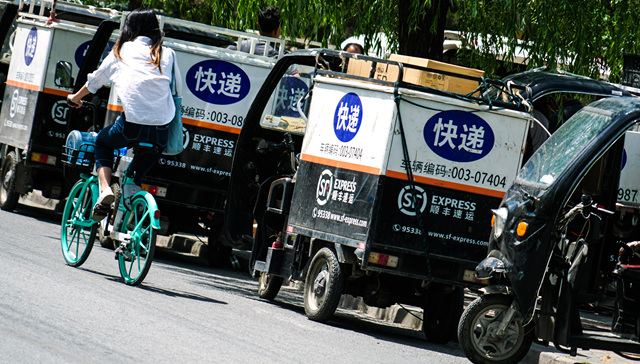By BAI Fan
In the delivery industry, poor services are often blamed on third parties, operating in what the couriers consider to be a gray area. Occupying on the fringes, these cowboys are key figures for outlets, whether they like it or not. The situation is worst where business is most concentrated.
In the midst of chaos, opportunity
The entire courier industry is not in a good place. Growth is faltering and price warriors are again sharpening their swords. Outlets are under the command of far-off HQs that do not appear to understand the difficulties of operators and offer little support while turning up the pressure.
Many merchants actually prefer to use agents, mainly because of the unit price. The problem these middlemen solve - if it really is a problem - is what happens before and during the handover from merchants to couriers.

The delivery price depends on many factors including the size, number and value of parcels; speed and timing of delivery; distance; costs at the pick-up end, and costs at the drop-off. There is no “unit” and no “unit price.” This Byzantine system of costing leaves plenty of space for arbitrageurs, interlopers and scalpers to operate.
Wholesalers, middlemen, aggregators
One of the simplest ways to play the inept system is to aggregate orders.
Many packets make for low prices. If an aggregator (known to delivery companies not as the partners which they perhaps are, but as “scalpers”) has 200 clients all sending out 1,000 parcels each month, then suddenly the price for each merchant falls from the 1,000-per-month rate to the 200,000-per-month rate, or at least closer to it. The aggregator-arbitrageur-scalper scoops up a few cents on the spread.
In Yiwu, China’s center of small plastic object production, many outlets rely on scalpers for more than 90 percent of their business. In Guangzhou, it’s about 80 percent.
The fundamental reason behind the scalping boom lies with the delivery companies themselves, and the constantly-increasing targets for franchisees. These targets are next-to-impossible to complete and fines result from arbitrarily-labeled “underperformance.” HQ always gets its money. Franchises need to increase volume at any cost.
Let the market decide
One operation in Yiwu spent more than 10 million yuan (US$1.4 million) on new equipment this year, with a capacity to process one million orders per day. Business is running at half that capacity. Packages have to come from somewhere.
Scalpers also cut costs by using their own vehicles and dealing directly with pesky customers.
Despite relying on scalpers, HQ invariably hates the system. Beyond the questions of service quality - something very difficult to be transparent about - a scalper is making a few small coins on each transaction, and the companies want that cash for themselves.
The free market determines the price, as it invariably will, and the couriers dislike it a lot. Companies have introduced wide-ranging rules on scalping, which neither address the problem nor help much, but provide yet more opportunities to “fine” operators.
So it is cheaper (and preferable) to pay someone to pick up your parcel and deliver it to the delivery company than it is for the company itself to pick it up.
And the situation becomes even more farcical when it relies on price differentials across regions, rather than bulk-buying discounts.
Over the hills and far away
Dealing with your nearest courier outlet may not be the cheapest option. If you operate in a busy area - Yiwu being an ideal example - demand for deliveries is high and so are prices. Prices in some distant backwaters are likely to be much lower. It’s not difficult to see what happens next.
In regions where the collection price is high, merchants will find scalpers in regions where the collection price is low. This method is said to disrupt market order and has been a focus of law enforcement in recent years.





